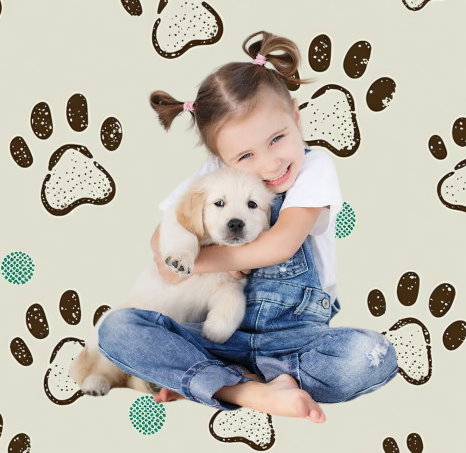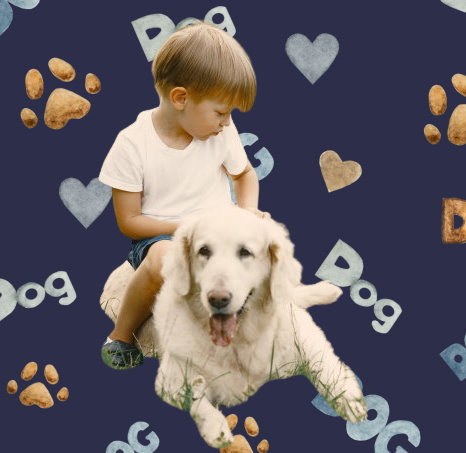Welcome to Dog Training Newbies !
Welcome to Dog Training Newbies !

As responsible dog owners, we want our furry companions to thrive in various social settings and interact positively with other animals and people. Socialization plays a crucial role in shaping a dog's behavior and temperament, contributing to their overall well-being and happiness. In this article, we will explore the importance of socializing your dog and provide helpful tips for ensuring they become a well-adjusted canine.
BUILDING CONFIDENCE AND REDUCING FEAR
Socializing your dog from an early age helps build their confidence and reduces fear and anxiety in unfamiliar situations. By exposing your furry friend to different environments, people, and animals, you help them develop a sense of security and adaptability. Gradual exposure to new experiences allows dogs to learn that the world is a safe and enjoyable place, reducing the likelihood of fear-based behaviors later in life.
ENCOURAGING POSITIVE BEHAVIOR
Proper socialization teaches dogs how to interact appropriately with others. It helps them understand boundaries, communicate effectively, and exhibit good manners. By exposing your dog to various social situations, you provide opportunities for them to practice polite greetings, play respectfully, and respond appropriately to different stimuli. Positive interactions during socialization lay the foundation for a well-behaved and socially adept canine companion.
PREVENTING AGGRESSION AND FEAR-BASED REACTIONS
Unsocialized dogs may display fear-based aggression or exhibit reactive behaviors when faced with unfamiliar people, animals, or environments. This can lead to stressful situations for both the dog and the owner. Socialization helps prevent these negative behaviors by exposing dogs to a wide range of stimuli and teaching them appropriate responses. Early socialization significantly reduces the risk of aggression and fear-based reactions, promoting a safe and harmonious living environment.


ENHANCING COMMUNICATION SKILLS
Socialization allows dogs to develop and refine their communication skills. Through interactions with other dogs and humans, they learn how to interpret body language, vocalizations, and social cues. This understanding of communication helps dogs navigate social situations more effectively, promoting positive interactions and reducing misunderstandings or conflicts.
PROMOTING MENTAL STIMULATION
Socialization provides mental stimulation for dogs, which is essential for their overall well-being. New environments, experiences, and social interactions challenge their minds and prevent boredom. Mental stimulation through socialization can help prevent behavioral issues caused by frustration or excess energy. Engaging your dog in different social settings keeps their minds active and contributes to a happy and well-adjusted canine companion.
TIPS FOR EFFECTIVE SOCIALIZATION
a. Start Early: Begin socializing your dog as early as possible, ideally during their critical socialization period, which is typically between 3 and 14 weeks of age.
b. Gradual Exposure: Introduce your dog to new experiences gradually and in a controlled manner. Start with calm and positive encounters, gradually increasing the level of difficulty.
c. Positive Reinforcement: Use positive reinforcement techniques, such as treats, praise, and rewards, to encourage and reward desirable behaviors during socialization.
d. Variety of Experiences: Expose your dog to a wide range of people, animals, sounds, sights, and environments. This helps them become comfortable and confident in different situations.
e. Controlled Interactions: Monitor and manage interactions with other dogs and people to ensure they remain positive and safe. Avoid overwhelming or stressful situations for your dog.
f. Ongoing Socialization: Socialization should be an ongoing process throughout your dog's life. Regularly expose them to new experiences, environments, and social interactions.
Remember, every dog is unique, and some may require extra care and attention during socialization. If you encounter challenges or have concerns, consult with a professional dog trainer or behaviorist who can provide guidance and support.
In conclusion, socializing your dog is a vital aspect of responsible pet ownership. It builds their confidence, encourages positive behavior, prevents aggression, enhances communication skills, promotes mental stimulation, and contributes to their overall well-being. By following the tips provided and making socialization a priority, you can help your furry friend become a well-adjusted and happy canine companion, capable of thriving in various social environments throughout their life.